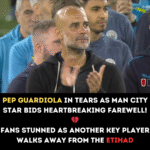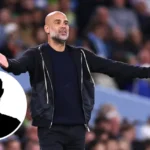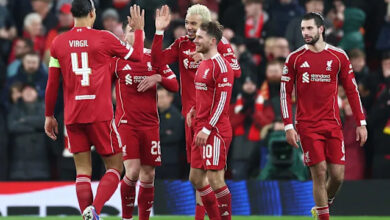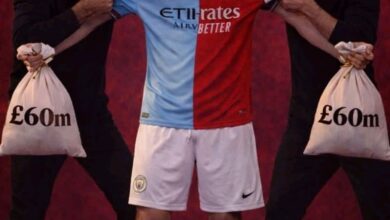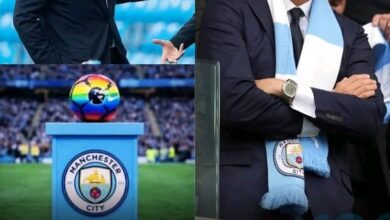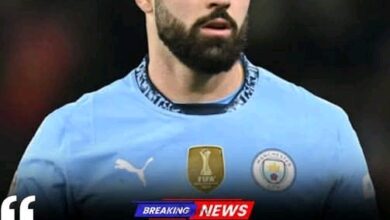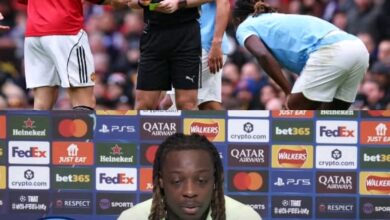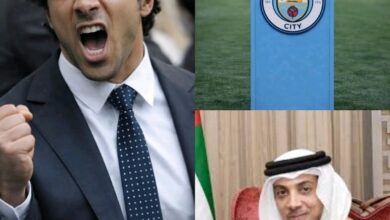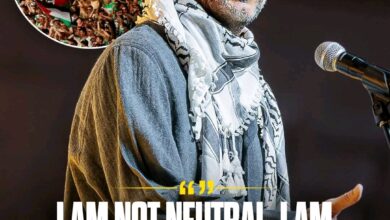Jack Grealish decision, £70m windfall – what next for Man City in transfer market

Manchester City has made headlines with their explosive start to the summer transfer window, completing four significant signings in just 72 hours and investing £108.5 million before many Premier League rivals have even begun their transfer business. This unprecedented pace of activity signals Pep Guardiola and the club’s determination to maintain their competitive edge both domestically and in European competition.
The speed and scale of these acquisitions represent a strategic shift in City’s transfer approach, moving away from their traditional cautious, measured recruitment style to a more aggressive, front-loaded summer strategy. This comprehensive analysis examines the implications of these moves, the strategic thinking behind them, and what they mean for Manchester City’s immediate and long-term future.
The Four Pillars: Analyzing City’s New Acquisitions
Rayan Aït-Nouri: Left-Back Reinforcement
The signing of Rayan Aït-Nouri from Wolverhampton Wanderers represents Manchester City’s commitment to strengthening their defensive options, particularly in the left-back position. Aït-Nouri’s arrival addresses a key area of concern for Guardiola, who has long sought reliable depth in the full-back positions.
The Algerian international brings pace, attacking prowess, and defensive solidity to City’s backline. His ability to contribute in both phases of play aligns perfectly with Guardiola’s tactical philosophy, which demands full-backs who can provide width in attack while maintaining defensive discipline. Aït-Nouri’s experience in the Premier League with Wolves means he requires minimal adaptation time, making him an immediately valuable asset.
From a tactical perspective, Aït-Nouri’s signing provides Guardiola with increased flexibility in his formation choices. The defender’s versatility allows City to deploy him in various systems, whether as a traditional left-back, a wing-back in a three-at-the-back formation, or even as an attacking midfielder in specific tactical setups.
Marcus Bettinelli: Goalkeeping Depth
The acquisition of Marcus Bettinelli addresses Manchester City’s goalkeeping situation, providing experienced cover and competition for the number one position. Bettinelli’s Premier League experience and reputation as a reliable shot-stopper make him an astute addition to City’s squad.
This signing becomes particularly significant given the ongoing speculation surrounding Ederson’s future at the Etihad Stadium. While the Brazilian remains City’s first-choice goalkeeper, having a proven Premier League goalkeeper like Bettinelli provides insurance against potential departures and ensures continuity in one of the most crucial positions on the field.
Bettinelli’s leadership qualities and experience with Chelsea and other Premier League clubs bring valuable mentorship to City’s younger goalkeeping prospects. His presence in the squad creates healthy competition and ensures that standards remain high in training and match situations.
Rayan Cherki: Creative Midfield Reinforcement
Perhaps the most exciting of City’s four acquisitions, Rayan Cherki’s £30 million move from Lyon represents a significant investment in creative talent. The French attacking midfielder possesses the technical ability, vision, and flair that have made him one of Europe’s most sought-after young talents.
Cherki’s signing addresses Manchester City’s need for creative options in the final third. His ability to play across multiple positions in the attacking midfield and wide areas provides Guardiola with tactical flexibility and depth in crucial areas of the pitch. The 21-year-old’s youth and potential suggest this is not just a short-term fix but a long-term investment in City’s future.
The French international’s style of play complements City’s possession-based approach perfectly. His close control, passing range, and ability to create chances from tight spaces align with the technical demands of Guardiola’s system. Furthermore, his experience in Ligue 1 and European competition means he brings valuable exposure to high-level football.
From a strategic standpoint, Cherki’s arrival may signal Manchester City’s preparation for potential departures in their creative midfield positions. With ongoing speculation about several key players’ futures, securing a talent like Cherki ensures continuity in one of the most important areas of the pitch.
Tijjani Reijnders: Midfield Orchestrator
The completion of Tijjani Reijnders’ move from AC Milan represents perhaps the most significant tactical acquisition of City’s summer business. The Dutch midfielder’s versatility, technical ability, and tactical intelligence make him an ideal fit for Guardiola’s system.
Reijnders brings a unique combination of defensive solidity and creative flair that addresses multiple needs within City’s midfield structure. His ability to play as a deep-lying playmaker, box-to-box midfielder, or even in more advanced positions provides Guardiola with numerous tactical options throughout the season.
The former AC Milan star’s experience in Serie A and international football with the Netherlands demonstrates his ability to perform at the highest level. His technical proficiency and understanding of positional play align perfectly with City’s tactical requirements, suggesting he could make an immediate impact in Guardiola’s system.
Strategic Implications: Early Window Activity
Competitive Advantage Through Early Action
Manchester City’s decision to complete their major signings before many competitors have begun their transfer activity provides several strategic advantages. Firstly, it allows the new players maximum time to integrate into Guardiola’s system during pre-season training and the Club World Cup campaign.
This early activity also sends a clear message to both domestic and European rivals about City’s ambitions for the upcoming season. By securing their targets quickly and efficiently, City avoid protracted negotiations and potential bidding wars that could inflate transfer fees or result in missed opportunities.
The timing of these signings also provides Guardiola with a full squad for the Club World Cup, allowing him to assess how his new players fit into his tactical plans in competitive matches. This tournament serves as an extended pre-season, giving the manager valuable time to experiment with formations and player combinations.
Financial Strategy and Squad Planning
The £108.5 million investment represents a significant financial commitment, but one that appears strategically sound given City’s recent revenue growth and the quality of players acquired. The club’s approach suggests confidence in their ability to generate additional funds through player sales to balance their expenditure.
This front-loaded spending approach allows City to secure their primary targets before market prices potentially increase later in the window. Historical transfer data shows that prices often rise as the window progresses and clubs become more desperate to complete deals.
The Departure Dilemma: Managing Outgoings
Kyle Walker’s Uncertain Future
Kyle Walker’s absence from the Club World Cup squad signals the end of an era at Manchester City. The English defender’s potential departure represents more than just a personnel change; it marks the conclusion of one of the most successful periods in the club’s history.
Walker’s contributions to City’s success over recent seasons cannot be overstated. His pace, defensive reliability, and leadership have been crucial components of Guardiola’s tactical system. However, at 34 years old, the club appears ready to move in a different direction, prioritizing younger options and potentially significant transfer fees.
The right-back’s departure would create both challenges and opportunities for Manchester City. While losing an experienced, proven performer is never ideal, it opens up space for younger players to develop and provides financial resources for further strengthening in other positions.
Jack Grealish’s Crossroads
Jack Grealish’s situation represents one of the most intriguing subplots of City’s summer transfer activity. The England international’s £100 million move from Aston Villa was one of the most expensive signings in Premier League history, but his impact at City has been mixed.
Grealish’s potential departure would represent a significant financial loss for Manchester City, given his transfer fee and wages. However, his inconsistent performances and limited playing time under Guardiola suggest that both player and club might benefit from a change of scenery.
Everton’s reported interest in Grealish highlights the challenges facing both player and club. While Grealish possesses undeniable talent, his style of play may not align perfectly with Guardiola’s tactical requirements. A move to a club where he could play a more central role might benefit all parties involved.
James McAtee’s Development Path
James McAtee’s expected departure represents Manchester City’s approach to youth development and financial sustainability. The homegrown midfielder’s potential £25 million transfer fee demonstrates the value of City’s academy system and provides significant financial resources for further investment.
McAtee’s situation illustrates the difficult balance between developing young talent and maintaining competitive squad depth. While the academy graduate has shown promise, the competition for places in City’s midfield makes regular first-team opportunities limited.
The midfielder’s involvement with England’s Under-21 team at the European Championships provides an ideal platform to showcase his abilities to potential suitors. A successful tournament could increase his transfer value and provide City with additional negotiating leverage.
Tactical Evolution: How New Signings Fit Guardiola’s System
Formation Flexibility
The new signings provide Guardiola with increased tactical flexibility across multiple formations. Aït-Nouri’s versatility allows City to deploy three-at-the-back systems more effectively, while Cherki and Reijnders provide options for various midfield configurations.
This tactical flexibility becomes particularly important in different competition contexts. The demanding schedule of Premier League, Champions League, and domestic cup competitions requires squad depth and tactical adaptability that these signings provide.
Positional Play Enhancement
Each new signing brings specific qualities that enhance Manchester City’s positional play principles. Reijnders’ positional intelligence and passing range improve City’s ability to control matches through possession, while Cherki’s creativity provides additional options for breaking down defensive structures.
The integration of these players into Guardiola’s system will likely involve careful coaching and tactical instruction. The manager’s track record of improving players suggests that each signing has the potential to exceed their current level under his guidance.
Financial Fair Play Considerations
Balancing the Books
Manchester City’s significant expenditure must be balanced against Financial Fair Play regulations and internal financial sustainability requirements. The club’s strategy appears to involve generating funds through player sales to offset their transfer investments.
The potential sales of Walker, Grealish, and McAtee could generate substantial funds, potentially exceeding £100 million in combined transfer fees. These sales would not only balance the books but also free up significant wage bill space for the new signings.
Revenue Generation Through Success
City’s investment in new players represents a calculated risk designed to maintain their competitive success. Continued success in the Premier League and Champions League generates significant revenue through prize money, commercial deals, and increased global exposure.
The Club World Cup also provides additional revenue opportunities and global marketing exposure. The tournament’s expanded format and increased prize money make it a valuable competition for participating clubs.
Looking Ahead: Expectations and Challenges
Integration Challenges
Despite the quality of City’s new signings, integrating four new players into an established system presents challenges. Guardiola’s tactical demands require time to master, and each player will need to adapt to new teammates, playing styles, and expectations.
The Club World Cup provides an ideal opportunity for this integration process. The tournament’s competitive nature combined with its timing allows for meaningful assessment of how new players fit into the team structure.
Competition for Places
The arrival of new players increases competition for places throughout City’s squad. This competition should drive performance standards higher and provide Guardiola with more options for team selection based on form and tactical requirements.
However, managing player expectations and maintaining squad harmony becomes increasingly challenging with a larger squad. Guardiola’s man-management skills will be crucial in ensuring all players remain motivated and committed to the team’s objectives.
Conclusion: A Statement of Intent
Manchester City’s explosive start to the transfer window represents more than just player acquisitions; it demonstrates the club’s unwavering commitment to maintaining their position at the pinnacle of world football. The strategic timing, quality of signings, and financial investment all point to a club determined to build on their recent success.
The integration of Aït-Nouri, Bettinelli, Cherki, and Reijnders into Guardiola’s system will be fascinating to observe. Each player brings unique qualities that address specific needs within City’s squad structure, while their combined impact could elevate the team to new heights.
As the transfer window continues to evolve, Manchester City appears well-positioned to adapt to changing circumstances. Their early activity provides a foundation for the season ahead while maintaining flexibility to make additional moves if required.
The success of these signings will ultimately be judged on their contribution to Manchester City’s pursuit of domestic and European glory. However, the early signs suggest that City has once again demonstrated their ability to identify, acquire, and integrate top-quality players into their winning formula.
The stage is now set for what promises to be another thrilling season, with Manchester City’s new acquisitions potentially playing crucial roles in determining the outcome of multiple competitions. The investment made this summer reflects the club’s ambitions and provides fans with genuine optimism for the challenges ahead.


